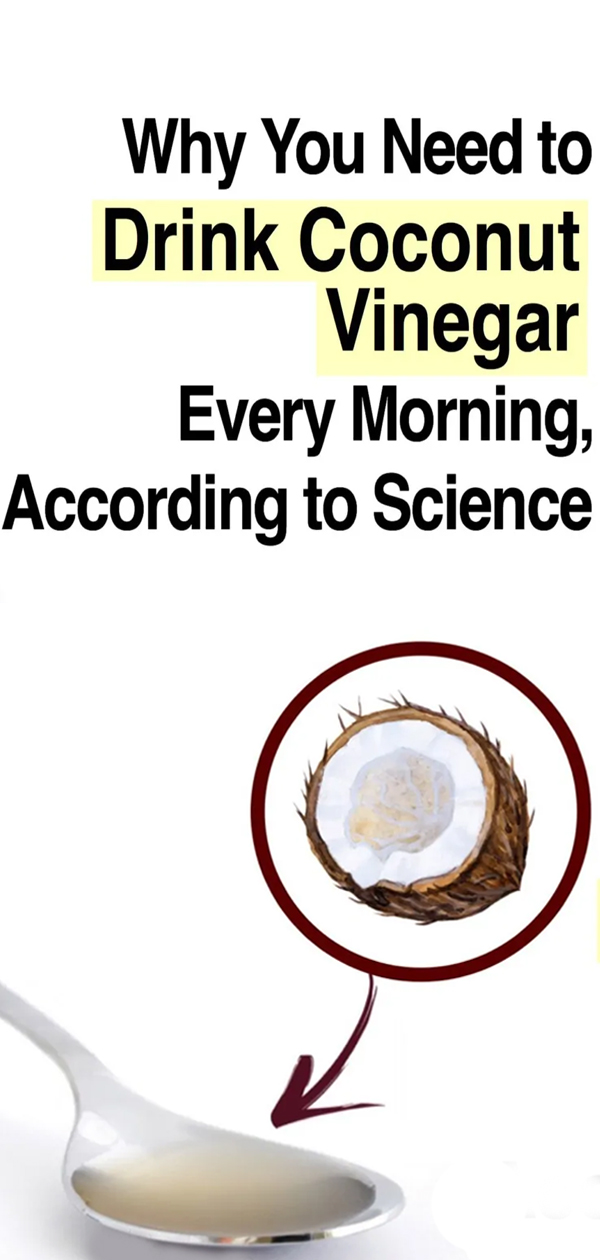Coconut vinegar…Have you heard of it?
Sounds strange, right? But it’s true; the delicious tropical fruit that has given us coconut water, coconut butter, and coconut oil has produced a new darling of the natural health world: coconut vinegar.
Unlike many other coconut products, coconut vinegar isn’t formed using the whitish flesh of the nut, but rather the sap of coconut tree blossoms. The sap is then aged for about 8 months to a year; during which time the sap naturally ferments, preserving the liquid’s enzymes, nutrients and minerals.
Coconut vinegar is a staple condiment throughout Southeast Asia and India but is relatively unknown in Western countries. It is used for cooking, dipping, as a salad dressing, and as an add-in to sauces or other condiments. Coconut vinegar is also used for medicinal purposes (more on this later!)
The benefits of coconut vinegar
As coconut vinegar is naturally fermented, it retains most of its nutritional properties from source to table.
Here Are The Main Benefits Of The New Addition To The Vinegar Family:
1. Coconut Vinegar Is A Healthy, Natural Source Of Probiotics
Probiotics are healthy microorganisms that assist the gut in maintaining a healthy microbiome, which is essential to things like proper digestion and nutrition absorption.
Natural probiotics, such as those in coconut vinegar, stimulate nerves that control gut movement. Research shows that probiotics are useful in fighting off diarrhea, irritable bowel syndrome (IBS), and lactose intolerance.
Other conditions that natural probiotics help treat include:
– Inflammatory bowel disease (IBD)
– Infectious diarrhea (caused by bacteria, parasites, or viruses)
– Anti-biotic related diarrhea
Some research exists that claims probiotics may also help with:
– Oral health
– Preventing allergies and colds
– Skin conditions, like eczema
– Urinary and vaginal health
2. Coconut Vinegar Is Incredibly Nutrient-Dense
Coconut trees are grown in mineral-rich volcanic soil, producing sap from coconut blossoms; producing fluid that is rich in minerals, nutrients, and vitamins.
Coconut blossom sap contains boron, copper, iron, magnesium, manganese, phosphorus, potassium, sulfur, and zinc. The vinegar is particularly rich in potassium, holding an impressive 192 milligrams per tablespoon!
Nearly every mineral contained in coconut vinegar assists in some essential biological processes. Potassium is a vital mineral micronutrient that is important for maintaining fluid and electrolyte balance; iron is an essential element for blood production and blood oxygen transfer; magnesium helps maintain normal nerve and muscle cell function, supports a healthy immune system, and normalizes the heartbeat!
3. Coconut Vinegar Is A Rich Source Of Amino Acids
Coconut sap contains all nine essential amino acids! Incredible! And very rare for a non-meat food source. Additionally, the vinegar contains 8 nonessential amino acids.
Essential acids are those that cannot be made by the body and include isoleucine, histidine, leucine, lysine, methionine, phenylalanine, threonine, tryptophan, and valine.
Amino acids are the ‘building blocks’ of protein and make up a significant portion of our cells, muscles, and tissues. Besides water, amino acids in the form of protein make up the highest share of our body weight.
4. Coconut Vinegar Scores Low On The Glycemic Index (And Is Diabetic-Friendly!)
Coconut vinegar scores a very low 35 on the glycemic index (‘GI’), making it a great food option for people with diabetes. The index assigns a value to foods based on how quickly or slowly foods cause an increase in blood glucose levels, ranging from a score of 0 to 100.
Foods that score a 55 or lower “are more slowly digested, absorbed and metabolized and cause a lower and slower rise in blood glucose.” Contrastly, foods that raise blood glucose levels above normal have a toxic effect; increasing the risk of cardiovascular disease, kidney failure, and obesity.
In a 2008 study, researchers assigned 210 diabetes patients to either a high-fiber diet or low-GI diet. Patients on the low-GI diet made more improvements in controlling glycemic levels and heart disease risk factors.
5. Coconut Vinegar Fights Off Infection And Illness
As mentioned, coconut vinegar contains a high concentration of potassium, which helps to thin mucus. The acetic acid contained in coconut vinegar helps prevent bacterial growth, which contributes to illnesses such as cold and flu. The vinegar also contains a healthy amount of vitamin C and ascorbic acid, “an antioxidant that’s required for metabolic processes in the body, including tissue growth and adrenal gland function.”
Although more research needs to be done to validate these claims, it’s reasonable to assume that both coconut vinegar and apple cider vinegar are comparable in how they fight off common infections and illnesses.
Some experts also say that coconut vinegar can also substitute as a natural antiseptic to help heal small cuts and wounds.
Final words
There is little doubt regarding the health benefits of coconut vinegar. (Dr. Oz even did a segment about it!)
Coconut vinegar can be found in any whole food market, and prices range from around $4 to $7 a bottle. Whether the product is organic or not accounts for this fluctuation in price.
If you take prescription medication for high blood pressure, consider consulting with your primary care doctor before consumption.


